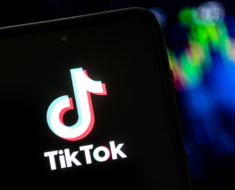
Social media has become an integral part of our lives, connecting people across the globe. However, traditional social media platforms have raised concerns about data privacy, censorship, and centralized control. This has led to the emergence of decentralized social media platforms, which offer an alternative approach to online networking.
What is Social Media Decentralization?
Social media decentralization refers to a shift away from the traditional model of centralized control, where a single company or entity manages user data, content moderation, and platform rules. In decentralized social media, the power is distributed among a network of nodes or users, reducing the control and influence of a single authority. This approach aims to promote transparency, user autonomy, and data ownership.
Example of a Decentralized Social Media Platform:
One notable example of a decentralized social media platform is Mastodon. Mastodon functions similarly to Twitter but operates on a decentralized network of independently managed servers called instances. Users can choose an instance that aligns with their preferences and connect with users on other instances. This decentralized structure allows for greater customization, content moderation control, and enhanced user privacy.
Decentralized Blockchain Social Media Platforms:
Decentralized blockchain social media platforms take decentralization a step further by leveraging blockchain technology. Blockchain-based social networks store user data and content on a distributed ledger, ensuring transparency and immutability. Users have control over their data and can earn cryptocurrency tokens for contributing to the platform.
One example of such a platform is Steemit, which rewards content creators and curators with cryptocurrency tokens called Steem for their contributions. This incentivizes user engagement and content creation while reducing reliance on advertising revenue.
The Best Decentralized Social Media:
The concept of the “best” decentralized social media platform is subjective and depends on individual preferences and priorities. Some users may prioritize privacy and control over their data, while others may prioritize user engagement and content discovery.
Several decentralized social media platforms have gained popularity, each offering unique features and benefits:
– Mastodon: Known for its user-friendly interface and decentralized structure.
– Diaspora: Focuses on user privacy and data ownership, allowing users to control their information.
– Peepeth: Built on the Ethereum blockchain, it emphasizes immutability and transparent content moderation.
Ultimately, the “best” decentralized social media platform varies from person to person, and users should explore different options to find the platform that aligns with their values and needs.
Decentralized social media platforms prioritize user privacy, data ownership, and transparency, offering an alternative to traditional social media giants. With various options available, users have the opportunity to choose platforms that align with their preferences and contribute to a more decentralized and user-centric online ecosystem.
Dil Bole Oberoi





